What are the best foods to eat while pregnant?
Discover the best foods to eat while pregnant to keep you and your baby healthy
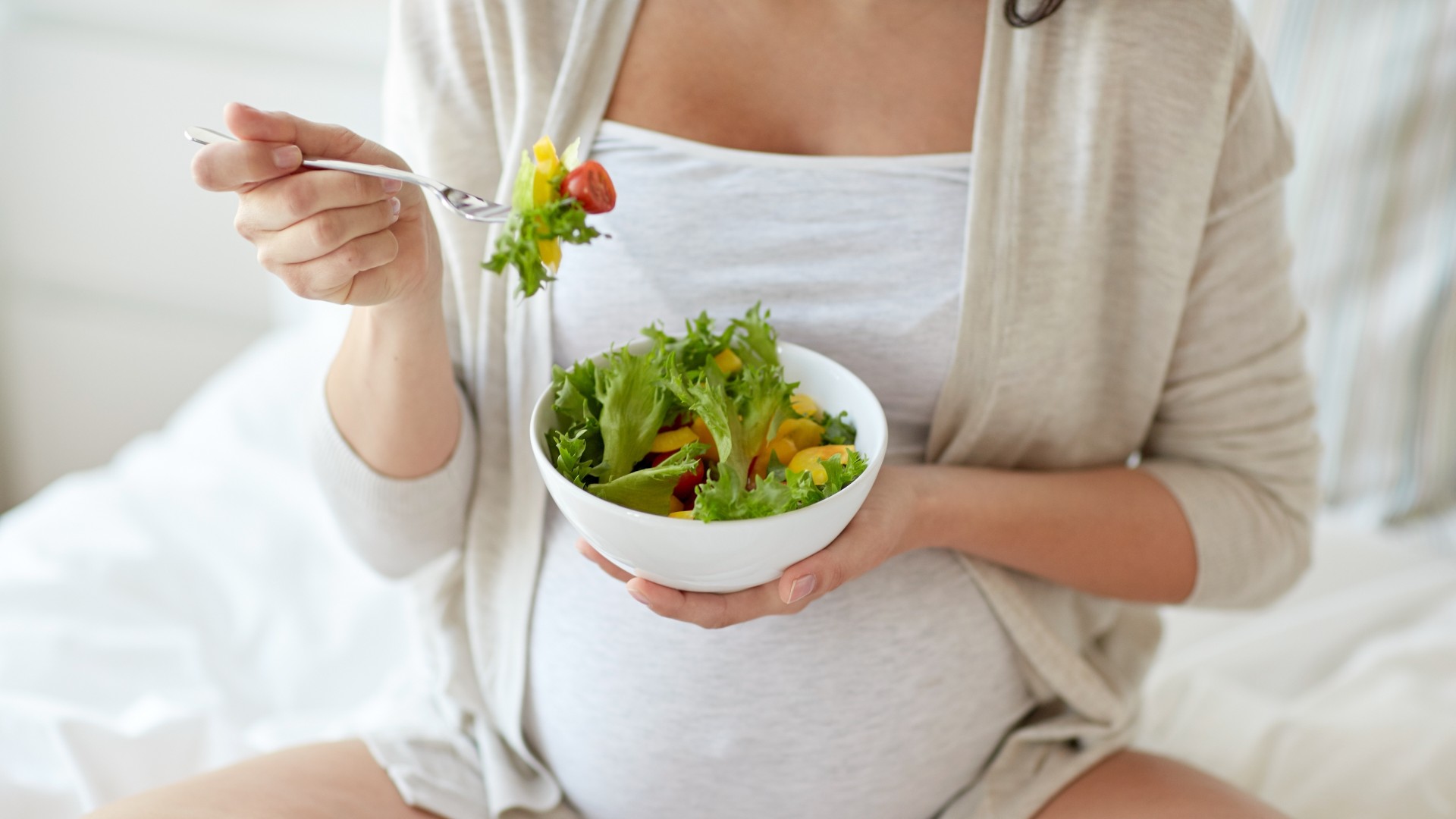
What are the best foods to eat while pregnant? It’s a question that may be swirling around in your head if you’ve just found out that you’re expecting. Eating a well-balanced diet during this time is essential, but knowing which foods to consume and which foods to avoid during pregnancy can feel like a bit of a minefield.
On top of dealing with morning sickness and the many other potential symptoms that can accompany pregnancy, many moms-to-be also have to face going without their favorite meals. And while it’s true that there are specific foods you’ll need to avoid because they pose a safety risk, you’ll be pleased to know there are plenty of delicious and healthy foods you can fill up on while pregnant.
In fact, focusing on what you can eat instead of what you can’t and filling your plate up with nutritious foods that are going to give your little one the best start in life can actually help make your diet feel less restrictive. Check our pregnancy diet guide to find out more.
For the most part, the foundations of eating well remain the same regardless of whether you’re pregnant. Yet there are specific nutrients that acquire increased importance while you’re expecting. These include vitamins and minerals like iron and folate that play a vital role in the healthy development of your baby. Our round-up of the best multivitamins for women has a great option for expecting mothers.
We’ve consulted an expert about the best foods to eat while pregnant. You’ll learn about the science behind which nutrients to consume so you can make informed decisions about what to put on your plate. If you have specific dietary requirements, speak to a health professional for tailored advice.
What nutrients are important during pregnancy?
Questions of ‘how to get pregnant’ and ‘am I pregnant?’ tend to dominate most of our thoughts during the early days of trying to conceive, but once we’ve discovered that we are indeed expecting, our attention often turns to how we can have the healthiest pregnancy possible – a big part of which starts with what we’re putting into our bodies.
“A healthy and well-rounded diet before, during, and after pregnancy is essential to provide the proper nutrients for your baby to grow and develop,” says Amy Bragagnini, a National Spokesperson for the Academy of Nutrition and Dietetics and Oncology Dietitian at the Trinity Health-Lacks Cancer Center.

Bragagnini is the clinical oncology dietitian at Mercy Health Lacks Cancer Center. She is a board-certified specialist in oncology nutrition and provides personalized nutrition therapy for patients undergoing treatment for cancer. Bragagnini earned an undergraduate degree from Tri-State University and earned a master's from Central Michigan University.
During pregnancy, certain nutrients become more important. Pay attention to how much you’re consuming and increase your uptake if necessary.
Here are the nutrients to focus on while pregnant.
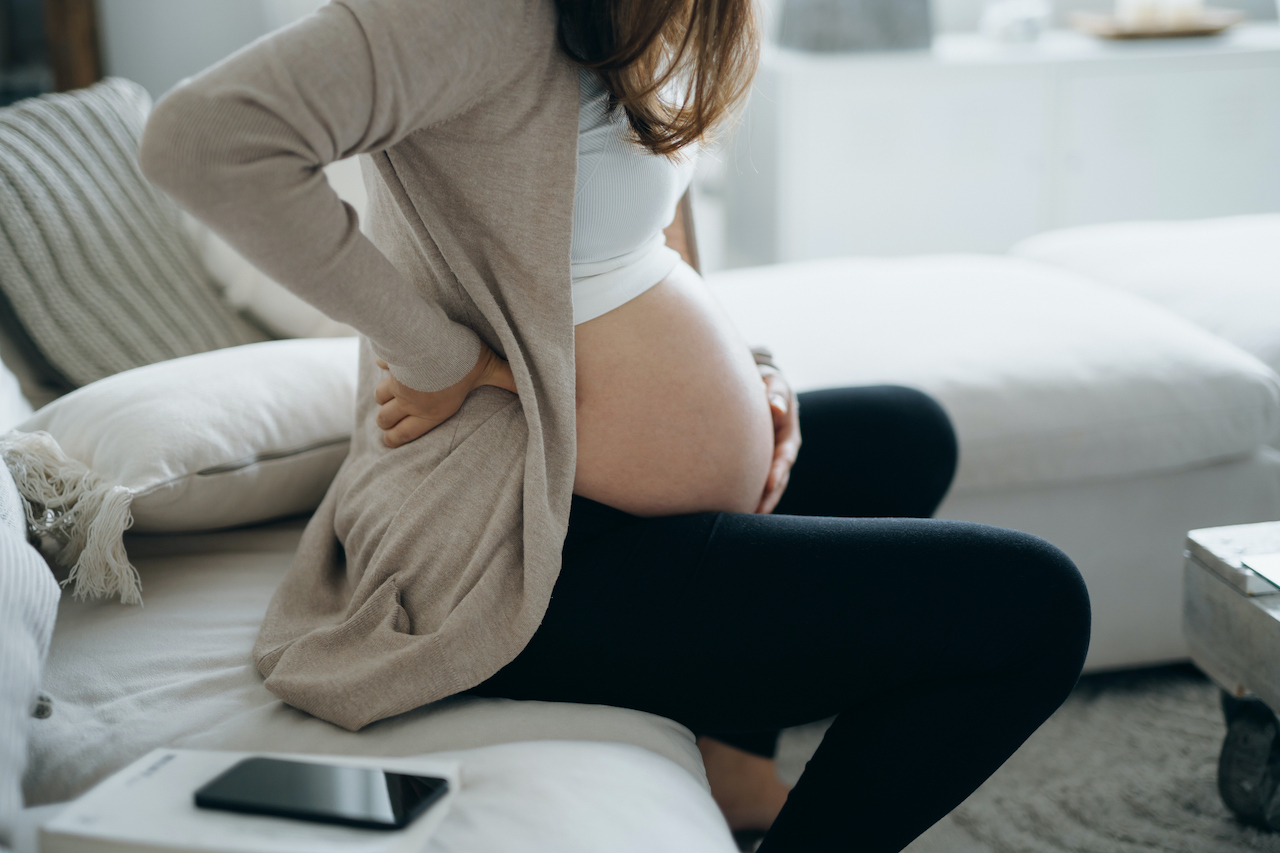
Folate or folic acid
“I recommend consuming adequate amounts of folic acid to help prevent neural tube defects,” says Bragagnini. “When pregnant, you should consume around 400 micrograms (mcg) per day.” Eat plenty of leafy greens, beans, and bananas, and consider a supplement.
Iron
“Pregnant women and rapidly growing babies are susceptible to iron deficiency anemia. Women should aim to consume around 27 milligrams (mg) of iron per day,” recommends Bragagnini. Thankfully, many foods are packed with iron, such as lean meat, fortified cereal, and spinach.
On a vegetarian or vegan diet? “Try pairing a plant-based source of iron (lentils, chickpeas, quinoa, tofu, or pumpkin seeds) with a food high in vitamin C,” suggests Bragagnini. “For example, add broccoli to a tofu stir fry or add bell peppers and tomatoes to your quinoa salad.” Plant-based sources of iron are hard to digest, so adding vitamin C to your meal will help aid absorption.
- Related: Which vegetables are high in iron?
Calcium
“Calcium is not only important for the expectant mother’s bones but is also key in the development of the baby’s skeletal system. Expecting adolescents aged 14-18 years should get around 1,300 mg of calcium per day, and women aged 19-50 should aim for 1,000 mg per day,” recommends Bragagnini.
Choose from calcium-rich foods like Greek yogurt, cooked leafy greens and calcium-set tofu.
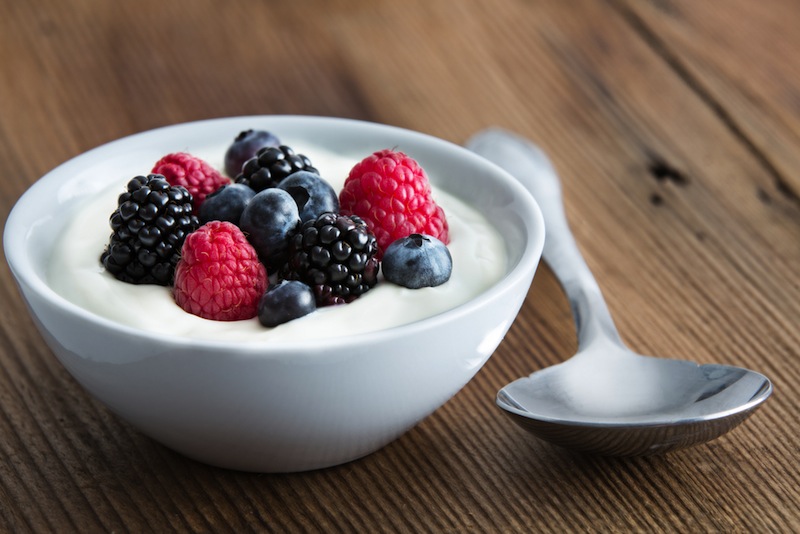
Choline
Choline is an often underlooked but essential nutrient during pregnancy. It supports the healthy growth of the fetus, and there may be a link between choline deficiency and neural tube defects, according to the National Institutes of Health. Eggs, mushrooms, and soybeans are all fantastic choices. The recommended intake is 450 mg a day for pregnant women.
What are the best foods to eat while pregnant?
So, what exactly are the best foods to eat while pregnant? Thankfully, it’s not all about giving up things — there’s plenty of food you can enjoy while pregnant.
“For the health of you and the baby, it is important to fill your body with a variety of healthy fruits, vegetables, lean meats and beans and nuts, and healthy fat. I suggest aiming for a good balance with food,” says Bragagnini.
High-quality proteins
Protein is one of the best foods to eat while pregnant as it’s essential for growth. You’ll want to increase your uptake while expecting. The good news is there are ample options, whether you prefer beef, chicken, eggs, tofu, or beans. A top tip is incorporating protein into every meal to hit the recommended amounts.
Dairy products like Greek yogurt are full of protein, with a bonus of high calcium levels.
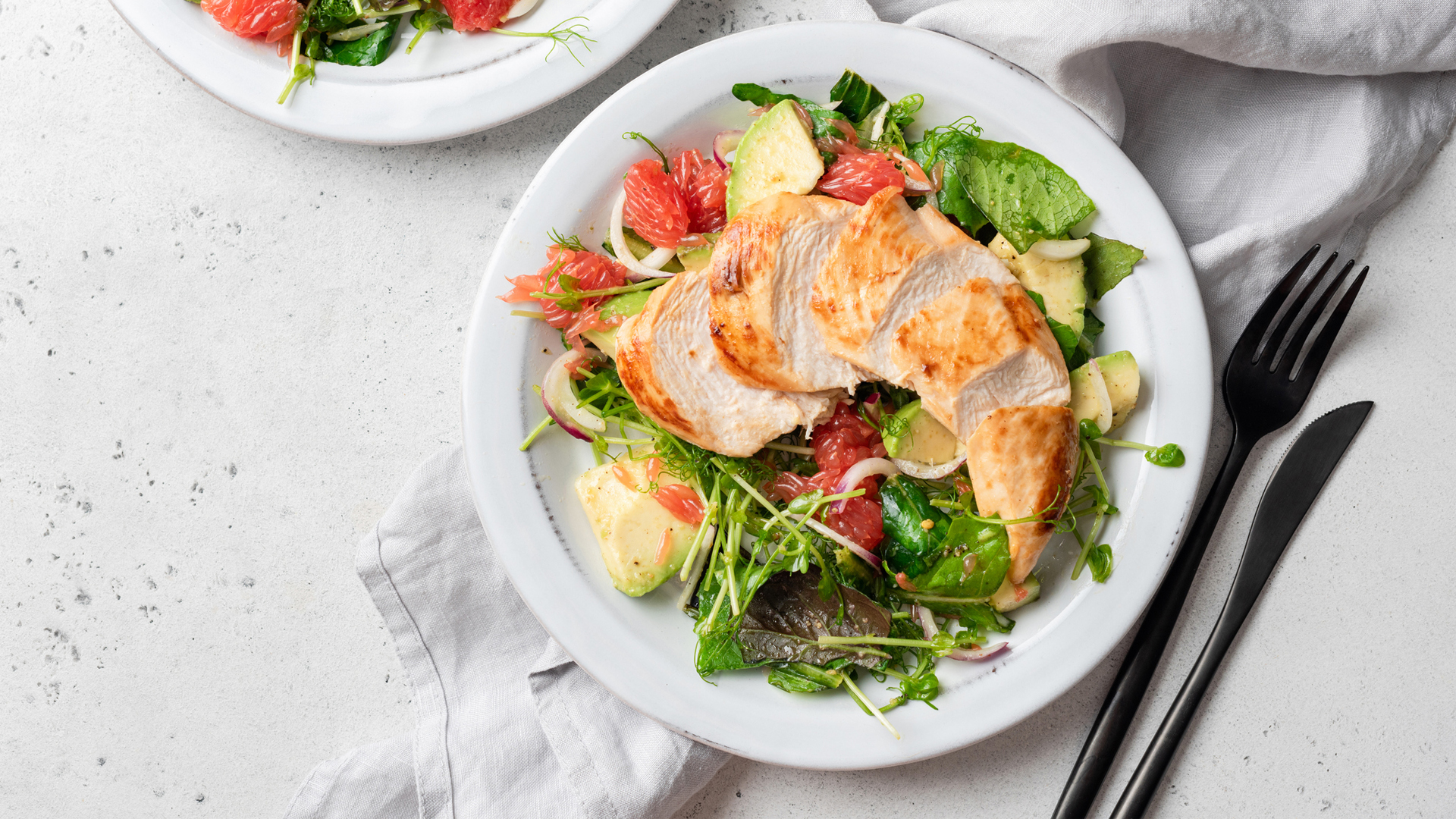
Oily fish
Fish are a fantastic way to up your omega-3 intake. Omega-3s are fatty acids that promote the healthy development of your baby’s brain and eyes, according to the National Institutes of Health. While the FDA cautions against eating fish from waters with high levels of mercury, there are plenty of options. Salmon, anchovies, and herrings are all superb choices.
Legumes
If you’re experiencing pregnancy-related constipation, legumes like beans and lentils are your friends. They are packed with fiber and are beneficial for gut health. If you’re vegetarian or vegan, they are a great way to add more protein to your meals. A 2018 study in BMC Pregnancy Childbirth found that consumption of legumes was associated with a reduced risk of low birth weight.
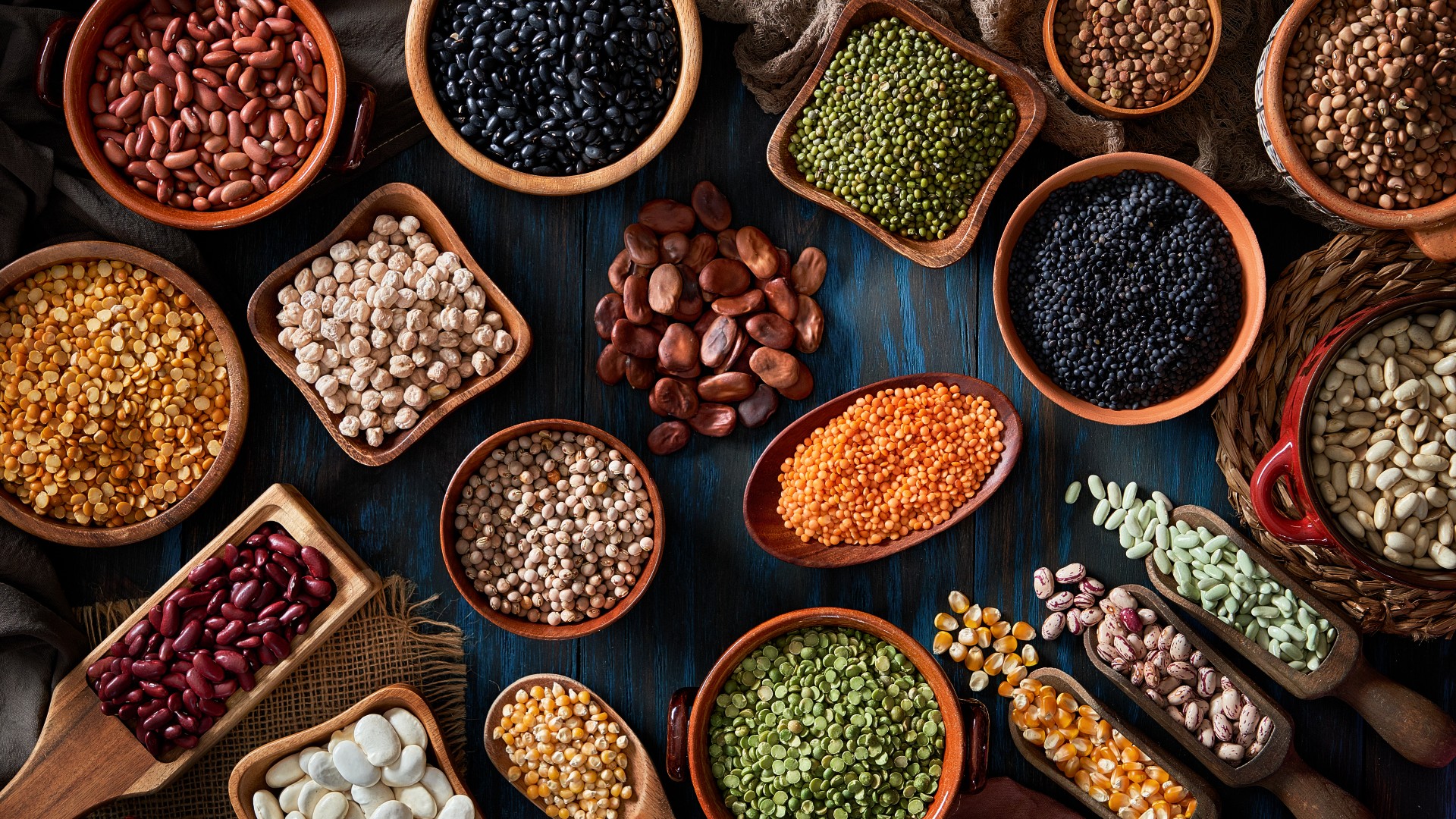
Fruit and vegetables
Filling your plate with a variety of fruit and veg is a fantastic way to boost your nutrient intake. According to 2020 research in the American Journal of Clinical Nutrition, eating more veg is associated with a reduced chance of your baby having a low birth weight and linked complications.
An easy swap is to ditch regular potatoes for sweet potatoes, rich in vitamin A. The National Institutes of Health recommends that pregnant women increase their intake of vitamin A as it’s vital for fetal development.
Whole grains
Compared to their processed cousins, whole grains are loaded with fiber and other vitamins and minerals, according to the Academy of Nutrition and Dietetics. Focus on switching out processed carbs like white bread and pasta for their whole grain equivalents for maximum health benefits. Think brown rice, wholemeal bread, and oats. Ready-to-eat or cooked cereals are a great way to up your iron and folic acid levels.
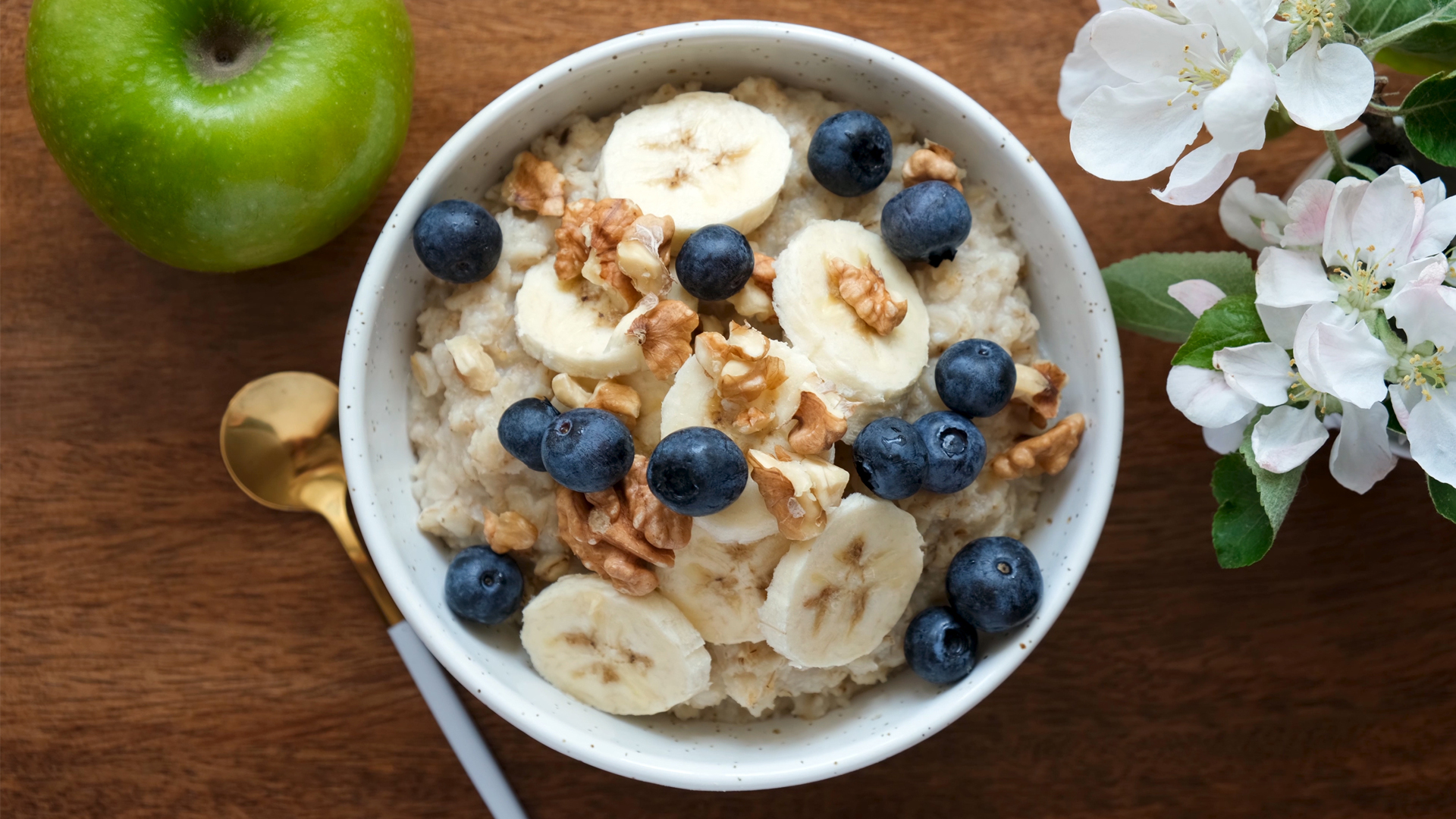
Healthy fats
Don’t forget to include healthy fats in your diet. Foods like avocado, olive oil, and pumpkin seeds all have a place as part of a balanced diet in moderation.
You’ll want to aim for healthy weight gain while pregnant. The saying ‘eating for two’ is misleading. “Studies suggest women should increase their calorie intake by around 340 calories per day in the second trimester and an additional 450 calories per day in the third trimester,” explains Bragagnini.
This article is for informational purposes only and is not meant to offer medical advice.
Sign up for the Live Science daily newsletter now
Get the world’s most fascinating discoveries delivered straight to your inbox.
Louise Bond is a UK-based writer specializing in health and wellbeing. She has over eight years of experience in management within health and care and brings this passion and expertise to her writing. Louise has been published in The Guardian, Planet Mindful and Psychreg among others. She is at her happiest when she is out in nature, whether that’s on an invigorating hike or pottering in the garden.
Man gets sperm-making stem cell transplant in first-of-its-kind procedure
'Love hormone' oxytocin can pause pregnancy, animal study finds











